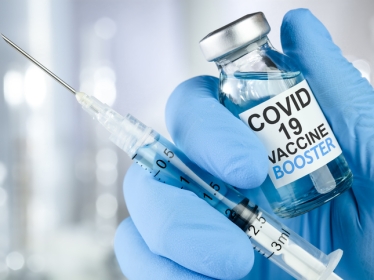Building Bridges to Better Health -
Understanding the importance of Colorectal Cancer Awareness
According to the World Health Organization, Colorectal Cancer is the third most common cancer diagnosed worldwide. Despite its prevalence, colorectal cancer remains a disease that is often overlooked. As advocates for health and wellness, it's imperative that we shine a light on colorectal cancer, raise awareness of the importance of early diagnosis and disseminate information about access to screening & treatment options.
Read on to empower yourself with some essential knowledge and effectively spread awareness about colorectal cancer.
What is Colorectal Cancer?
Colorectal cancer refers to cancer that begins in the colon or rectum. It is also known as bowel cancer, colon cancer, or rectal cancer. It typically begins as a polyp, a small growth on the inner lining of the colon or rectum, which can eventually turn cancerous if left untreated. While it can occur at any age, colorectal cancer is primarily diagnosed in individuals over the age of 50. However, recent trends have shown an alarming increase in colorectal cancer among younger adults, making early detection and prevention efforts even more crucial.
Recognising the signs and symptoms of colorectal cancer is crucial for early detection and prompt intervention. These symptoms may include changes in bowel habits (such as diarrhea or constipation), blood in the stool, abdominal pain or discomfort, unexplained weight loss, fatigue, and a feeling of incomplete bowel emptying.
The following article delves into the symptoms, risk factors, diagnosis, and treatments.

Why creating awareness on colorectal cancer is important?
Promotes Early Detection & Prevention Strategies
Early detection is key in the fight against colorectal cancer. Whether through participating in awareness events or engaging in conversations with friends and family, we can contribute to raising awareness and advocating for positive change. A colorectal cancer screening is important because some people may not show any symptoms at first, underscoring the importance of early detection. Dr Toh Ee-Lin, General and Colorectal Surgeon from TEN Surgery (a member of Healthway Medical) emphasises the importance of timely screening for early detection of colorectal cancer here.
Encourages Regular Screening
Regular screenings are recommended for individuals without any risk factors, starting at 50 years old, with earlier or more frequent screenings advised for those with risk factors or family history of the disease. Additionally, encouraging lifestyle modifications such as maintaining a healthy diet, regular exercise, limiting alcohol consumption, and avoiding cigarettes and tobacco can help reduce the risk of developing colorectal cancer.
Early detection increases the likelihood of successful treatment and offers more treatment choices and better outcomes. Standard screening methods include faecal occult blood tests (FOBT), faecal immunochemical tests (FIT), stool DNA tests, and colonoscopy (the most common procedure). In this video, Dr Eugene Yeo, General and Colorectal Surgeon of TEN Surgery (a member of Healthway Medical), demonstrates the complete colonoscopy procedure.
Exploring Colorectal Cancer Treatment Options
Several types of treatment options are available for colorectal cancer, depending on factors such as the stage of the cancer, its location, and the overall health of the patient. Advancements in medical science have led to a multitude of treatment options for colorectal cancer, including surgery, chemotherapy, radiation therapy, targeted therapy, and immunotherapy.
- Surgery: Surgery is often the primary treatment for colorectal cancer, especially for early-stage tumours. The goal of surgery is to remove the cancerous tissue along with nearby lymph nodes. In some cases, minimally invasive techniques such as laparoscopic or robotic-assisted surgery may be used to reduce recovery time and complications.
- Chemotherapy: Chemotherapy involves using drugs to kill cancer cells or stop them from growing. It is commonly used before or after surgery to shrink tumours, destroy remaining cancer cells, or prevent cancer from recurring. Chemotherapy may be given orally or intravenously and is often used in combination with other treatments.
- Radiation Therapy: Radiation therapy uses high-energy beams to destroy cancer cells. It may be used before surgery to shrink tumours, after surgery to kill remaining cancer cells, or as a palliative treatment to relieve symptoms in advanced cases. External beam radiation therapy is the most common type used for colorectal cancer.
- Targeted Therapy: Targeted therapy drugs target specific molecules or pathways involved in the growth and spread of cancer cells. These drugs may be used alone or in combination with chemotherapy or other treatments. Common targeted therapy drugs for colorectal cancer include cetuximab, panitumumab, and bevacizumab.
- Immunotherapy: Immunotherapy drugs help the immune system recognise and attack cancer cells. They may be used for advanced colorectal cancer that has not responded to other treatments or in combination with chemotherapy for certain patients. Immune checkpoint inhibitors such as pembrolizumab and nivolumab are examples of immunotherapy drugs used in colorectal cancer treatment.
Patients must discuss their treatment options with their healthcare team to develop a personalised treatment plan tailored to their specific needs and preferences. Additionally, supportive care such as nutritional counselling, pain management, and psychosocial support may be integrated into the overall treatment approach to improve quality of life during and after treatment.
Fighting Colorectal Cancer Together!
Raising awareness about colorectal cancer is not merely about disseminating information; it's about empowering individuals to take proactive steps toward prevention, early detection, and advocacy. For those who are looking for screening options, Healthway Medical Screening Centre Royal Package provides a comprehensive screening package that includes a colonoscopy. Eligible Singapore citizens can also access subsidised screening for various cancers and vaccinations at public hospitals through government initiatives like CHAS, Screen For Life, and HealthierSG.
Increasing awareness, supporting information, and making aware of screening and treatment options can significantly reduce colorectal cancer's burden and save lives. Let's unite in the fight against colorectal cancer and work towards a future where this disease no longer poses a threat to our communities.




